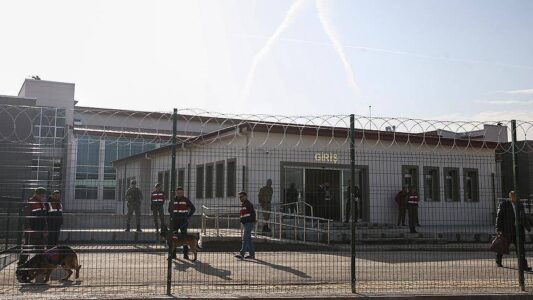
Turkish authorities released Islamic State suspect over principle rarely exercised for opposition defendants
A penal court in Turkish capital Ankara has cited reasonable doubt regarding the acquittal of suspected ISIS member Burhan Gök, who was on trial for alleged connections to several ISIS bombings in Turkey and Europe, in its detailed ruling released on Wednesday.
The court said there was not sufficient evidence “beyond any and all doubt” that Gök, who had been arrested in the same car as Orhan Gönder, had been part of or loyal to the Islamic State terrorist organisation, or received orders within its hierarchical structure, journalist Gökçer Tahincioğlu wrote in an article for news website T24.
In the same case, the man who placed explosives on the site of a Peoples’ Democratic Party (HDP) rally in southeastern Kurdish-majority province of Diyarbakır where four people died and more than 400 were injured, Orhan Gönder, was sentenced to “four counts of life in prison, 104 counts of 17 years in prison for major attempted murder, 102 counts of 14 years in prison for attempted murder, and 13 months and four months in prison for possession of dangerous substances,” along with Mustafa Kılıç and İsmail Korkmaz, Tahincioğlu said.
The rally bombing of June 5, 2015 kickstarted a summer of devastating terrorist attacks after Turkey’s ruling Justice and Development Party lost parliamentary supermajority when the HDP won 80 seats in the elections two days later.
The case file included records of phone calls between Gök and İlhami Balı, known as the Turkey officer for ISIS. Gök had also spoken with Balı about how to smuggle new recruits and Gönder himself over the Turkish border into Syria. Gök refused to acknowledge the calls, and said he had no knowledge of who the men he was arrested together with were, or who owned the car they had been arrested in.
Also arrested in the same car was Ibrahim Al Bakraoui, one of the Brussels Airport suicide bombers of 2016 who went to Belgium following his release from prison in Turkey.
The court ruled that evidence of the phone calls had been collected unlawfully, “in a display of sensibility long unseen in the judiciary,” Tahincioğlu said, and therefore could not be used against the suspect.
There had been “many phone calls with İlhami Balı” via a mobile number Gök had admitted to owning, the court said. There were also calls from different numbers that allegedly belonged to Gök, but there was no evidence to prove this, it said.
There was no warrant to tap Gök’s phone, according to the court, and the investigators should have petitioned a relevant warrant that would have made it possible to include the “coincidental” evidence. “As such, it is clear that the calls in question cannot be accepted as lawful evidence,” it said.
Despite the court basing its acquittal ruling on the lack of a warrant, no members of security forces or the judiciary were charged for failing to issue surveillance warrants regarding the rally bombing, or the subsequent bombings of that summer, Tahincioğlu said.
“Nobody questioned why this action was not taken with regard to such important records,” he said. “Thus was the scandal in ISIS investigations covered up.”
The court had also rejected lawyers’ requests to have the phone Gök had on his person when he was preparing to cross the border into Syria.
“The judiciary’s practices paint a completely different picture from one case file to the next,” Tahincioğlu said, pointing to the evidence used against Turkish philanthropist Osman Kavala for his re-arrest in February.
On February 18, Kavala was acquitted of terrorism charges related to the Gezi Protests of 2013, when a small sit-in to defend a park in central Istanbul snowballed into massive anti-government protests that some four million people attended over the course of the summer. The philanthropist had been accused of organising and funding the protests.
The next day, before he could be released, another Istanbul court ordered his arrest over alleged ties to the failed coup attempt of July 15, 2016, based on an “intense suspicious relationship” between Kavala and former U.S. State Department employee and academic Henri Barkey, who himself faces charges for allegedly plotting the coup.
The main piece of evidence in the new case was that Barkey’s and Kavala’s cell phones had received signals from the same cell tower for a total of 93 hours.
Kavala’s lawyers maintained that the coincidence could be due to the location of Kavala’s offices, in close proximity to the heart of Istanbul and many popular hotels in the city.
Source: Ahval News





